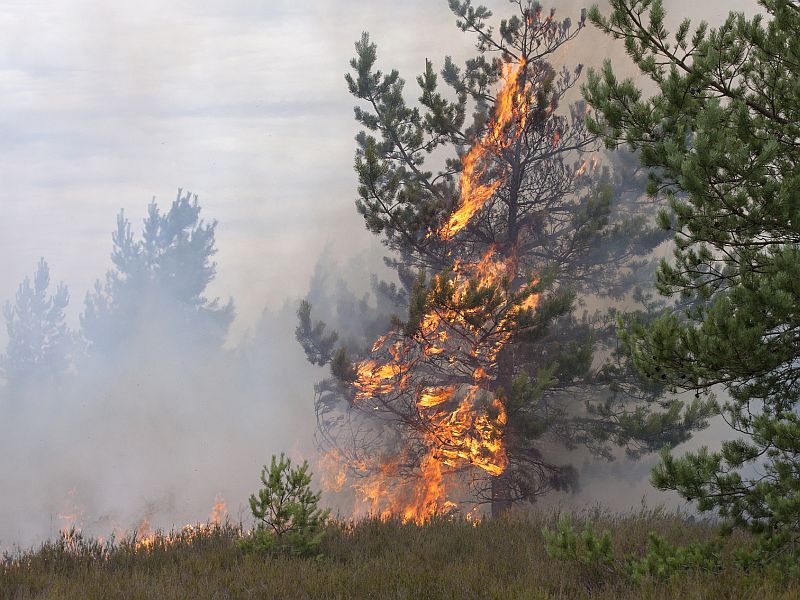Wildfire Smoke Threatens Health for Miles Around

WEDNESDAY, Oct. 30, 2019 (HealthDay News) -- Smoke from the wildfires raging in California poses a serious health risk -- even to those far away from the blazes, an expert warns.
"Smoke can present special health hazards to humans and pets, especially children, older adults and those with chronic respiratory problems such as emphysema, asthma, congestive heart failure, chronic obstructive pulmonary disease (COPD) and others," said Dr. Zab Mosenifar, a lung specialist at Cedars-Sinai, in Los Angeles.
"Small particles in the air can travel hundreds of miles. While the immediate danger is within a 25-mile radius of a fire -- depending on the winds -- particles travel and float in the air for up to two weeks after the fire is out," Mosenifar explained in a hospital news release.
Firefighters this month have been battling blazes from one end of California to the other. The whipping winds fanning the flames have helped distribute noxious particles far and wide.
The smoke can cause a number of health problems.
"When inhaled, smoke and small particles -- which consist of water vapor, carbon monoxide and ash -- can cause both short-term and long-term damage to the airways and lungs. Risks include irritation of the airways, inhalation of particles in the air and, of course, exposure to smoke if you are near the fires," Mosenifar said.
Certain people should limit the amount of time they spend outside if there is wildfire smoke in their area, he said.
"Those with compromised immune systems -- particularly people with lung disease or heart disease or the elderly or very young -- should do their best to stay indoors. That goes for pets, as well. Animals, especially dogs, can have an even stronger reaction to smoky air than humans," Mosenifar said.
"Even if you cannot see the smoke and particles, be aware that they are still there and still harmful," Mosenifar warned.
Here's what you can do to help protect yourself and your loved ones:
If you have an air filter at home or work, use it to protect indoor air quality. If you don't have an air filter, setting an air conditioner to recirculate air can help with indoor air quality. Check that the air conditioner filters are clean.
Continue using inhalers if you have respiratory problems. This is crucial, Mosenifar emphasized.
If you have to go outside when there's wildfire smoke in your area, wear a mask. It should be an N95 mask to keep particles out. If you don't have a mask, cover your face with a wet towel.
"If you are suffering from persistent coughing, wheezing or an inability to catch your breath, it may be time to see a doctor, especially for those with respiratory problems. Watch for the same symptoms in pets. If they persist, seek veterinary assistance," Mosenifar advised.
More information
The U.S. Centers for Disease Control and Prevention has more on wildfire smoke.

The news stories provided in Health News and our Health-E News Newsletter are a service of the nationally syndicated HealthDay® news and information company. Stories refer to national trends and breaking health news, and are not necessarily indicative of or always supported by our facility and providers. This information is provided for informational and educational purposes only, and is not intended to be a substitute for medical advice, diagnosis, or treatment.

